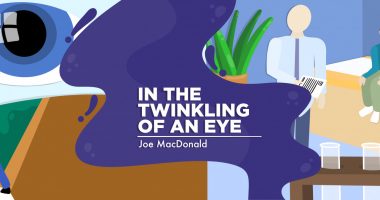Treatment Is Life-changing and Stories of the Past Ground Us

I received an email from an old friend. She remembers when my youngest son, Caeleb, was in and out of the hospital. We both have experience raising a son with hemophilia and an inhibitor. Our paths are terribly similar, and seeing her name pop up in my email was a pleasant surprise. She extended an invitation to participate as a panelist in a virtual event.
No problem, I thought.
I joined the panelists for a practice session and shared my story of assembling and working with numerous doctors to help my son, Caeleb. Sharing my experiences is never a problem, so when I found myself stumbling to get my words together, I was surprised.
Caeleb’s current treatment is revolutionary. I call it life-changing. The past four years have instilled peace and routine in my household. The nightmare bleeding episodes, failed ports, and inhibitor complications are now a distant memory. I realize these years are slipping from my memory. But for a moment, I wondered if sharing my experiences even matters since the current treatment is so much better.
For over 25 years, I advocated for my sons. I identify myself as a fierce advocate, but I sometimes feel like an imposter in the bleeding disorders community. But I think I have something in common with those who experienced the bad blood epidemic of the 1980s, known as the Hemophilia Holocaust.
During this time, the hemophilia community faced significant loss from a tainted blood supply, which infected thousands of men with HIV. Many died from AIDS-related complications. As a young, newly diagnosed parent in 1996, I did not relate to their stories. I could not appreciate their passion at that time in my journey with hemophilia.
These amazing men who survived the ’80s continue to advocate. They relentlessly raise their voices so that the community never forgets. While my situation with Caeleb is vastly different, there is a similarity. I now understand that I am part of a generation of people who have a story to tell.
Hemophilia is becoming easier for many to manage. There are children with hemophilia who may never experience a joint bleed or develop a target joint. This is amazing; however, a bleed can happen in an instant. While new treatments can be revolutionary, remembering what can happen is essential to maintain perspective.
All stories are important to share. We are at a point in hemophilia history where treatments are surpassing what many people ever envisioned. I hope treatments continue to improve, and perhaps one day, doctors will discover a cure. For now, I believe that sharing stories is critical in helping the bleeding disorders community remain vigilant.
Caeleb’s inhibitor complications left significant damage. The bleeds, mobility issues, and joint damage are real. My 15-year-old son lives with scars marking past ports, a persistent limp from a damaged joint, and a heart that cringes every time he sees a needle. If sharing my stories helps one person be aware and possibly even prepared for what can happen, I will keep sharing.
***
Note: Hemophilia News Today is strictly a news and information website about the disease. It does not provide medical advice, diagnosis, or treatment. This content is not intended to be a substitute for professional medical advice, diagnosis, or treatment. Always seek the advice of your physician or another qualified health provider with any questions you may have regarding a medical condition. Never disregard professional medical advice or delay in seeking it because of something you have read on this website. The opinions expressed in this column are not those of Hemophilia News Today or its parent company, BioNews, and are intended to spark discussion about issues pertaining to hemophilia.







Comments
Allison Pohl
Share away! I feel much the same as you do now. I often feel as though my stories are not as relevant today as they were 15, or even 5, years ago. But keep on sharing because the way I see it, we may not be quite as relevant to those in developed countries with access to amazing treatments, but we sure are relevant to those in underdeveloped countries with little or no access at all. Our voices matter to them, and are a comfort in their time of need.